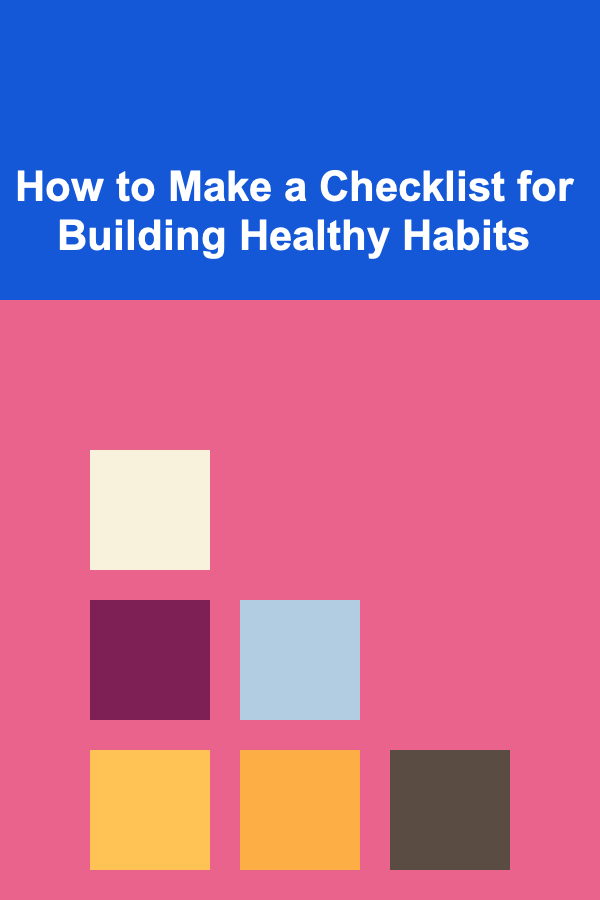
How to Maximize Your Potential by Utilizing Online Resources for Learning New Skills
ebook include PDF & Audio bundle (Micro Guide)
$12.99$10.99
Limited Time Offer! Order within the next:

In the fast-paced and ever-evolving world of today, acquiring new skills has become more critical than ever. Whether you're advancing in your career, switching industries, or pursuing personal growth, continuous learning is essential. Thankfully, the internet provides an overwhelming array of resources for learning new skills. However, the sheer volume of options can be both empowering and overwhelming.
The key to maximizing your potential through online learning is not simply having access to the vast resources available but knowing how to leverage them effectively. This actionable guide will help you navigate the online landscape, choose the right resources, and adopt strategies that will help you learn efficiently and effectively.
Define Your Learning Objectives
Before diving into the sea of online resources, it's crucial to have a clear understanding of why you want to learn and what exactly you want to achieve. Without a clear objective, it's easy to get lost in a vast amount of information without making meaningful progress.
Actionable Steps:
- Set SMART Goals: Start by defining specific, measurable, achievable, relevant, and time-bound (SMART) goals. For example, if you want to learn coding, a goal might be, "Learn Python programming to build a web application within three months."
- Prioritize: Are you learning for personal interest, career advancement, or a combination of both? Knowing your motivation will help you filter out distractions and focus on the most relevant resources.
- Break Down the Learning Process: If you want to learn a complex skill, break it down into smaller, manageable chunks. For instance, if you're learning graphic design, start with basic tools like Photoshop before moving on to advanced techniques.
Identify High-Quality Learning Resources
With millions of online learning platforms, blogs, tutorials, and YouTube channels, it's crucial to choose resources that provide high-quality, credible information. Not all online resources are created equal, and picking the right ones can significantly impact your learning experience.
Actionable Steps:
- Use Reputable Platforms: Websites like Coursera, Udemy, edX, and LinkedIn Learning offer structured courses from top universities and experts. These platforms often provide certifications and recognized qualifications, which can add value to your skillset.
- Leverage Free Resources: Platforms like Khan Academy, MIT OpenCourseWare, and YouTube offer free high-quality learning material. However, be selective about the content you choose. Look for reviews, ratings, or suggestions from trusted sources to ensure credibility.
- Check Credentials: Look for instructors or platforms that are recognized experts in the field. Check their credentials and experience to ensure the information provided is accurate and valuable.
- Read Reviews and Recommendations: Before committing to a paid course or expensive subscription, read reviews from others who have taken the course. Websites like Reddit, Trustpilot, or course review sites can offer insights into the content, quality, and effectiveness of a course or tutorial.
Make a Learning Schedule
Learning new skills online often requires self-discipline, especially when you're learning at your own pace. Setting a dedicated schedule helps you stay focused and committed, ensuring you make consistent progress.
Actionable Steps:
- Create a Study Plan: Dedicate specific time slots each day or week to learning. Even if it's only 30 minutes to an hour, consistency is key.
- Time Blocking: Allocate blocks of time to specific aspects of the skill you're learning. For instance, if you're learning a new language, one block might be dedicated to vocabulary practice, another to grammar exercises, and a third to listening comprehension.
- Track Progress: Use tools like Google Calendar, Trello, or Notion to schedule and track your learning goals. Logging your progress will keep you accountable and motivated.
- Build in Flexibility: While consistency is crucial, life happens. Build some flexibility into your learning schedule to accommodate interruptions or personal events.
Engage in Active Learning
While consuming content passively, such as watching videos or reading articles, is helpful, active learning has proven to be much more effective. Active learning involves engaging directly with the material, practicing, testing your knowledge, and applying the skills you're acquiring.
Actionable Steps:
- Practice, Practice, Practice: Apply the skills you're learning immediately. If you're learning coding, build small projects as you go. If you're learning a new language, start speaking or writing sentences as soon as you learn new vocabulary.
- Test Yourself: Regularly assess your understanding. Use quizzes, self-assessments, or practical exercises to reinforce what you've learned. Websites like Quizlet, for example, offer customizable flashcards to help you quiz yourself on key concepts.
- Join Communities: Engage with other learners by joining online forums, social media groups, or discussion boards related to your field of learning. Sites like Stack Overflow for coding, Reddit communities, or Facebook groups can provide support, advice, and feedback.
- Teach Others: One of the best ways to solidify your learning is to teach it to others. If you can explain a concept clearly, it means you truly understand it. Consider blogging, creating tutorials, or simply explaining the material to a friend or peer.
Stay Motivated and Accountable
Online learning can sometimes feel isolating, and it's easy to lose motivation. To stay on track, you need to keep yourself motivated and accountable.
Actionable Steps:
- Set Milestones: Celebrate small achievements along the way. Completing a module or passing a test is a milestone that should be acknowledged. This will keep your spirits high and help you focus on long-term progress.
- Create Accountability Partnerships: Find a learning buddy who shares your goals. Check in with each other regularly to track progress and share insights. This can help you stay on track and provide emotional support.
- Reward Yourself: After reaching certain learning milestones, treat yourself to something you enjoy. This reinforces positive behavior and helps to sustain your motivation.
- Mix It Up: Don't let learning become monotonous. Try different learning methods to keep things interesting. For example, after watching a tutorial, you could practice the skill by completing a real-world task, join a live webinar, or read a related book.
Reflect and Iterate
Learning is not a linear process. It involves trial, error, and continuous refinement. After you've spent some time learning a new skill, take a step back to reflect on your progress.
Actionable Steps:
- Review and Assess: At regular intervals (e.g., every month), take time to assess your progress. Are you closer to achieving your learning objectives? Do you need to adjust your approach or schedule?
- Identify Gaps: Reflect on areas where you are still struggling or concepts that are unclear. This will help you identify where to focus your energy next.
- Adapt Your Approach: If a specific learning method or resource isn't working for you, don't be afraid to adjust. Perhaps switching from videos to interactive exercises or seeking out different instructors can make a significant difference in your progress.
Integrate Learning into Daily Life
One of the most effective ways to truly master a new skill is to incorporate it into your daily routine. This helps reinforce the knowledge and allows you to apply it in real-world scenarios.
Actionable Steps:
- Real-World Application: If you're learning a language, try using it in your daily conversations. If you're learning project management, start managing a small personal project.
- Stay Curious: Beyond formal learning, stay curious and continue to engage with your subject through podcasts, articles, or casual reading. Continuous exposure reinforces learning and keeps the material fresh in your mind.
- Collaborate: Try collaborating with others who share your learning interests. This might involve contributing to a group project, joining a professional community, or attending virtual meetups and conferences.
Conclusion
The internet has democratized education, offering an unprecedented opportunity for anyone to learn new skills, regardless of location or background. By strategically selecting high-quality resources, setting clear goals, engaging in active learning, and maintaining motivation, you can unlock your full potential and master new skills more efficiently. However, learning is not a one-size-fits-all process. It requires persistence, adaptability, and a proactive mindset. With the right approach, online resources can be a powerful tool in your lifelong learning journey.

How to Create a Home Pet Care Routine That Works for You
Read More
How to Design a Walk-In Closet with Maximum Storage Capacity
Read More
How to Make a Checklist for Building Healthy Habits
Read More
How to Monetize Your Deep Learning Models for Steady Income
Read More
How to Provide Language Learning Instruction to Children: An Actionable Guide
Read More
How to Start a Cleaning Business with Minimal Investment
Read MoreOther Products

How to Create a Home Pet Care Routine That Works for You
Read More
How to Design a Walk-In Closet with Maximum Storage Capacity
Read More
How to Make a Checklist for Building Healthy Habits
Read More
How to Monetize Your Deep Learning Models for Steady Income
Read More
How to Provide Language Learning Instruction to Children: An Actionable Guide
Read More